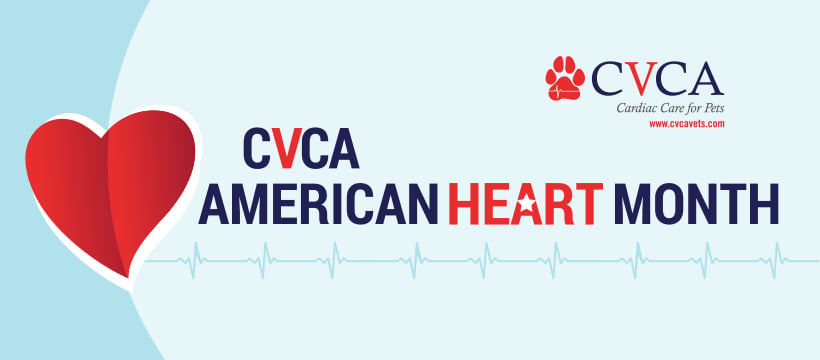What is Congestive Heart Failure (or CHF)?

Congestive heart failure (also called heart failure) is when the heart’s ability to pump is so poor that fluid collects in different parts of the body. In pets, the most common type of heart failure causes fluid buildup in or around the lungs. The most common signs in pets are coughing, trouble breathing, less energy, less interest in eating, or fainting. We sometimes also see fluid that makes the belly get swollen. Heart failure can be from many types of heart disease, mostly in older pets. This is a problem that we treat every day and most pets enjoy a good quality of life once they are treated.
In dogs, the most common heart disease happens at the mitral valve. With age, this valve starts to leak causing the heart to enlarge and over time, the heart fails. Dogs can also get a weakened heart muscle that also causes the heart to get larger over time. As the muscle weakens, fluid can start to build up in the lungs or belly.
Cats get a different type of heart disease that makes the heart muscle get too thick. Over time, this heart muscle problem can cause heart failure. Many heart diseases in cats are genetic and occur in special breeds but mixed breed cats are also at risk.
Heart failure in pets is treated with medicine - most of which are called in to your local drug store and available in generic form. Almost all pets improve with treatment. There are three main roles for the medicine we use to treat CHF and we usually use them together:
1) To decrease or remove the fluid – these are diuretics or water pills
2) To open the blood vessels and reduce how hard the heart has to work
3) To increase the strength of the heart’s pump
Once pets are on heart medicine, they need regular blood tests to be sure the other organs are still healthy even while taking the new medicine. The blood tests are usually done with your family vet and reviewed by CVCA cardiologists. All medications can have side effects and we work hard to prevent them. If you feel your pet is feeling worse on any medicine, please contact us so we can make changes to the treatment plan.
At CVCA, we partner with you and your family vet to keep your pet feeling their best. We will teach you how to monitor your pet at home for signs of heart failure including coughing, trouble breathing, less energy, less interest in eating, or fainting. These are all possible signs the heart failure is coming back. If this happens, please contact CVCA. Many times, we can change doses over the phone to get your pet back to a good quality of life.
Your family vet can help decide if your pet is having heart failure and even start to treat it. At CVCA, we can diagnose the exact type of heart disease causing your pet’s signs and get you the medicine to keep your furry friend feeling well. The truth is that many pets, once treated, can live with heart failure for many months to even years. If your pet is showing signs of CHF: coughing, trouble breathing, less energy, fainting or an enlarged belly, seek immediate veterinary help.
